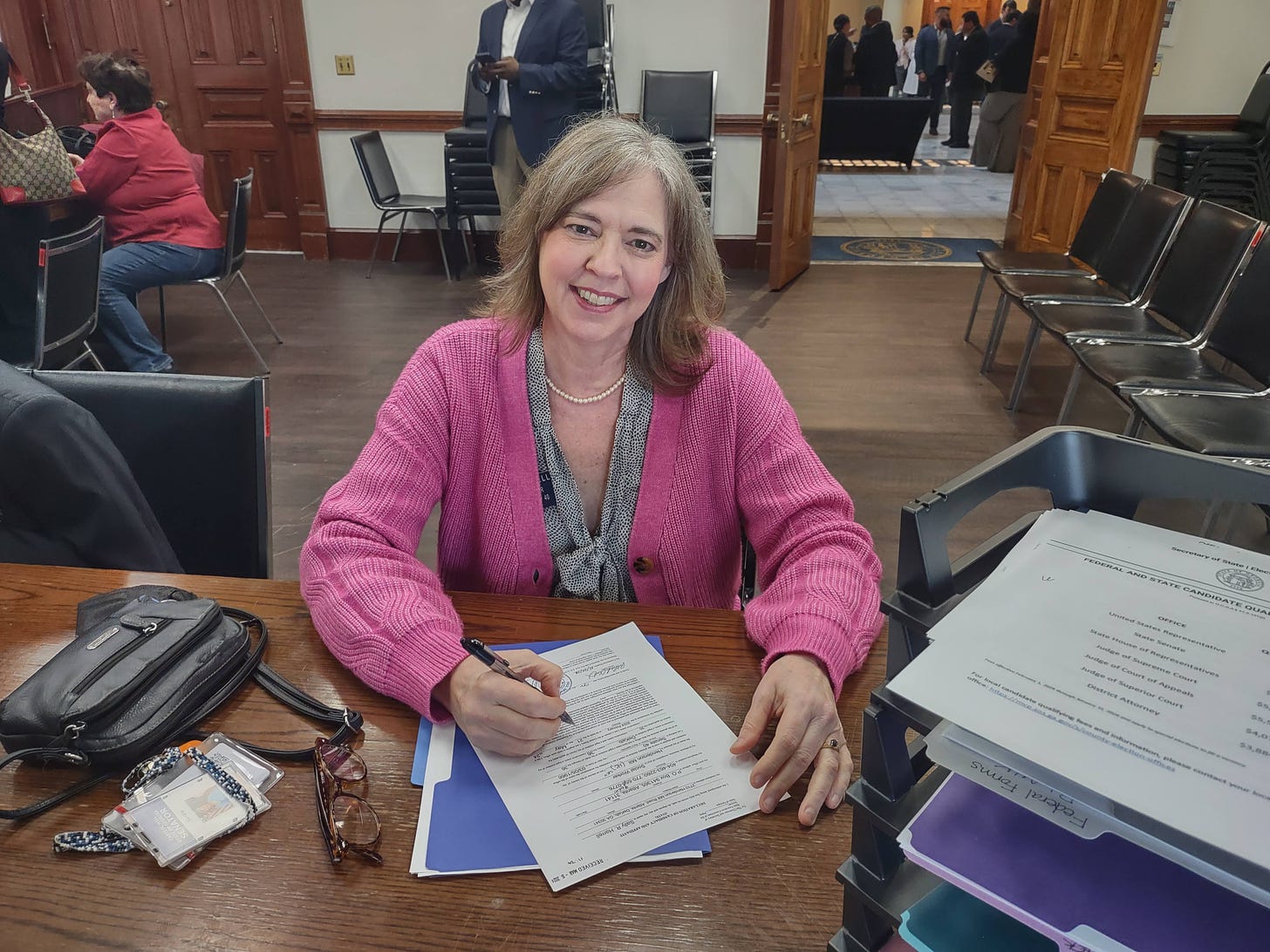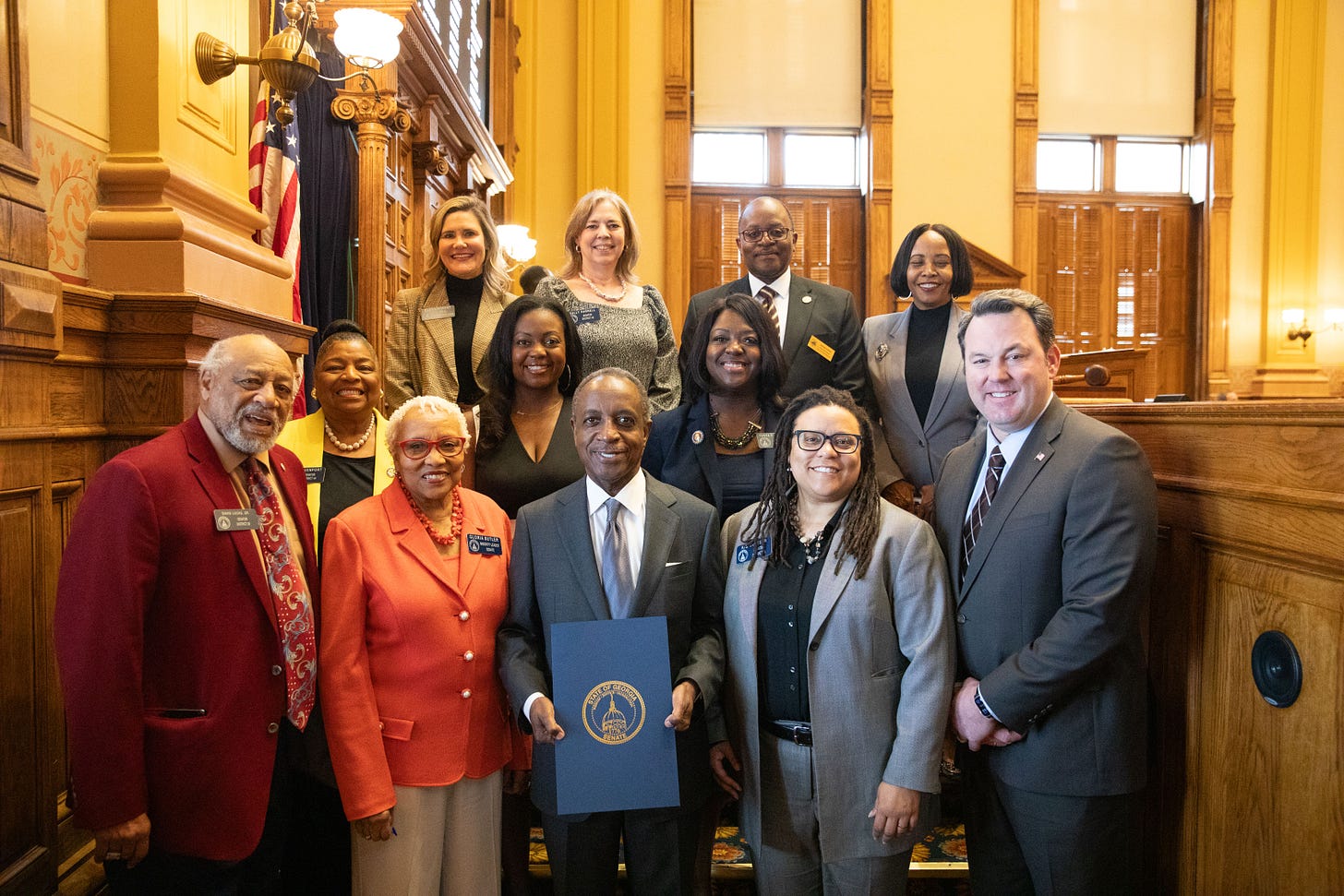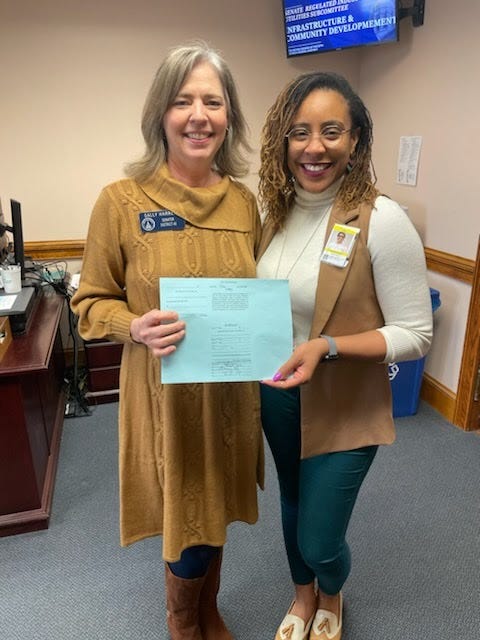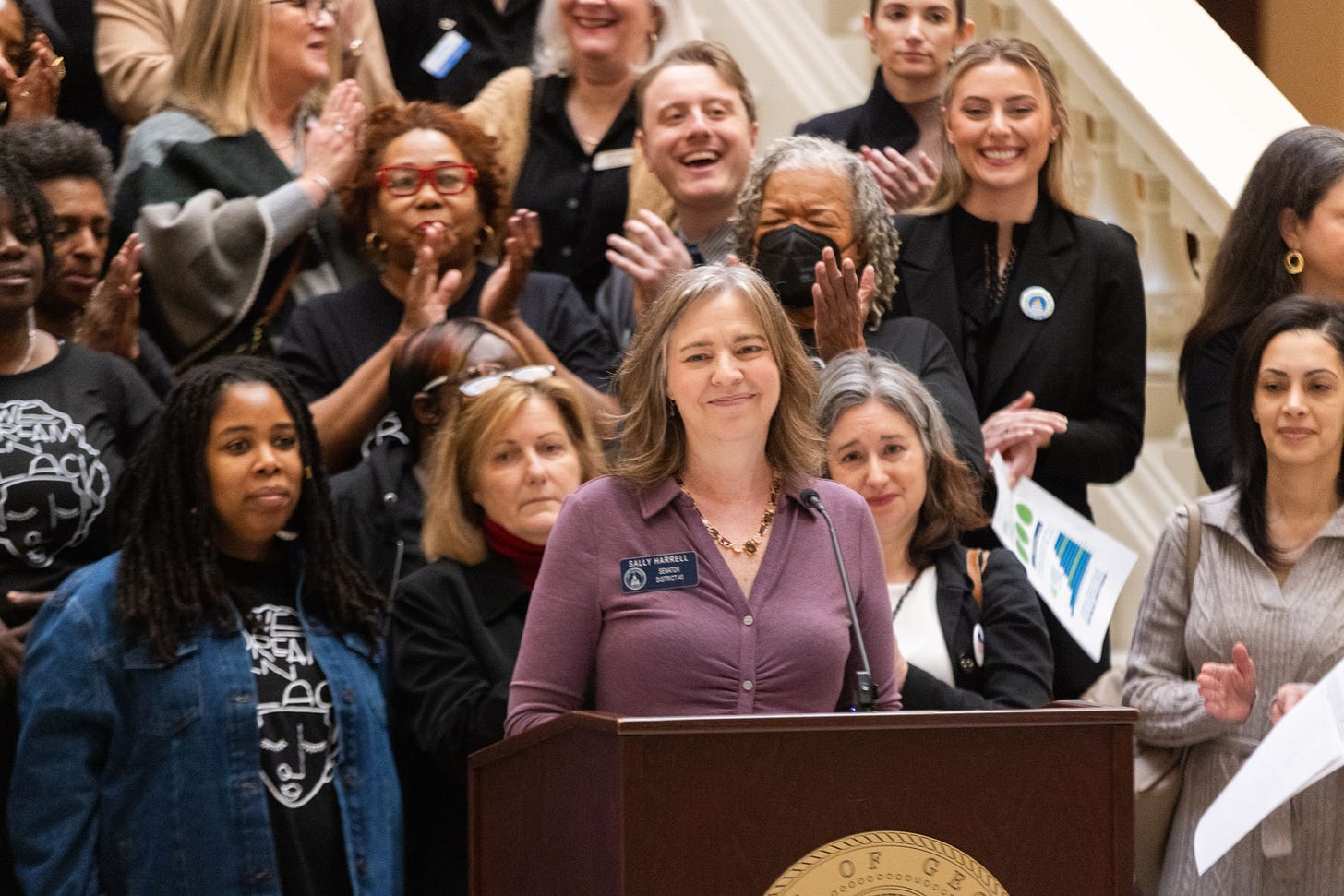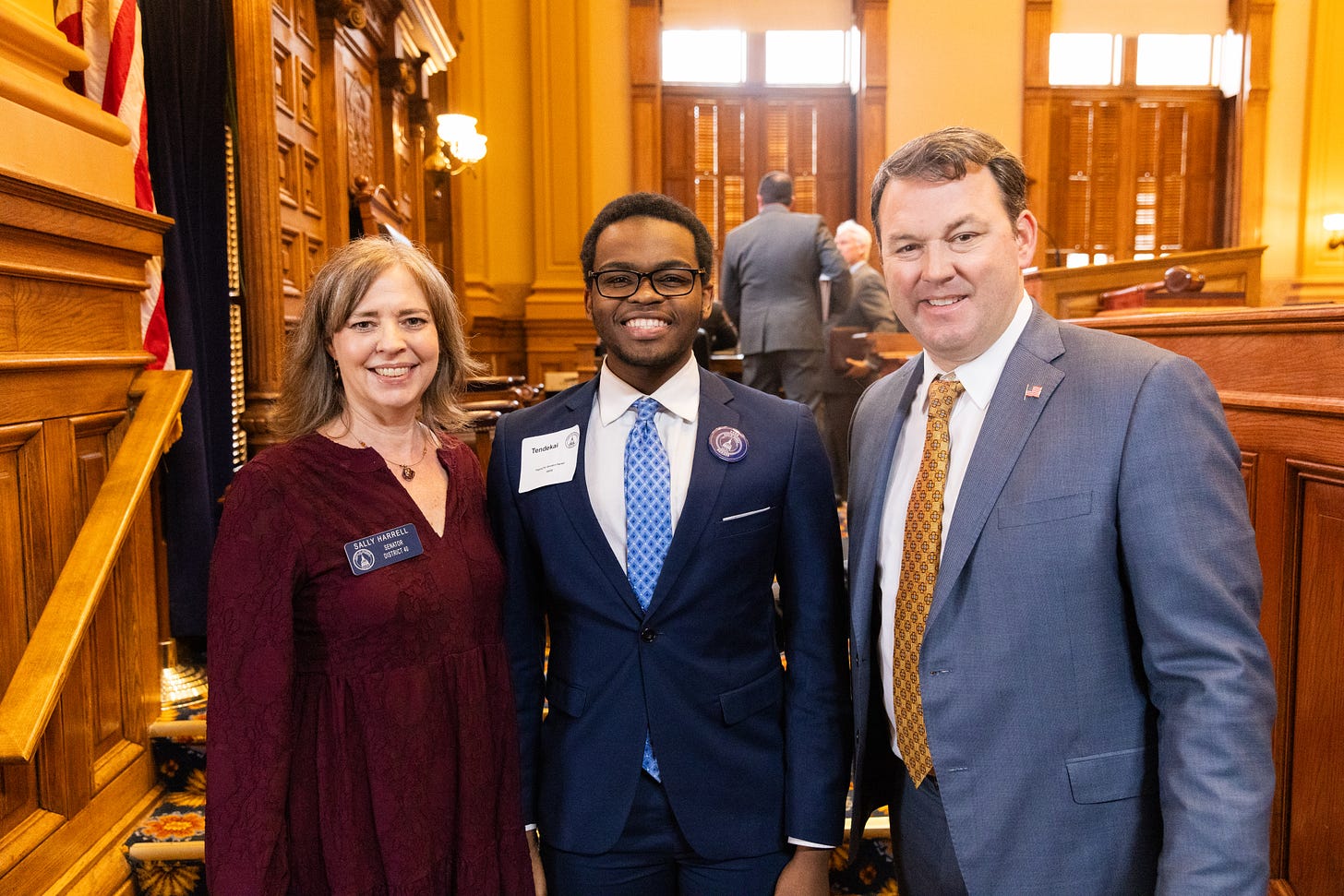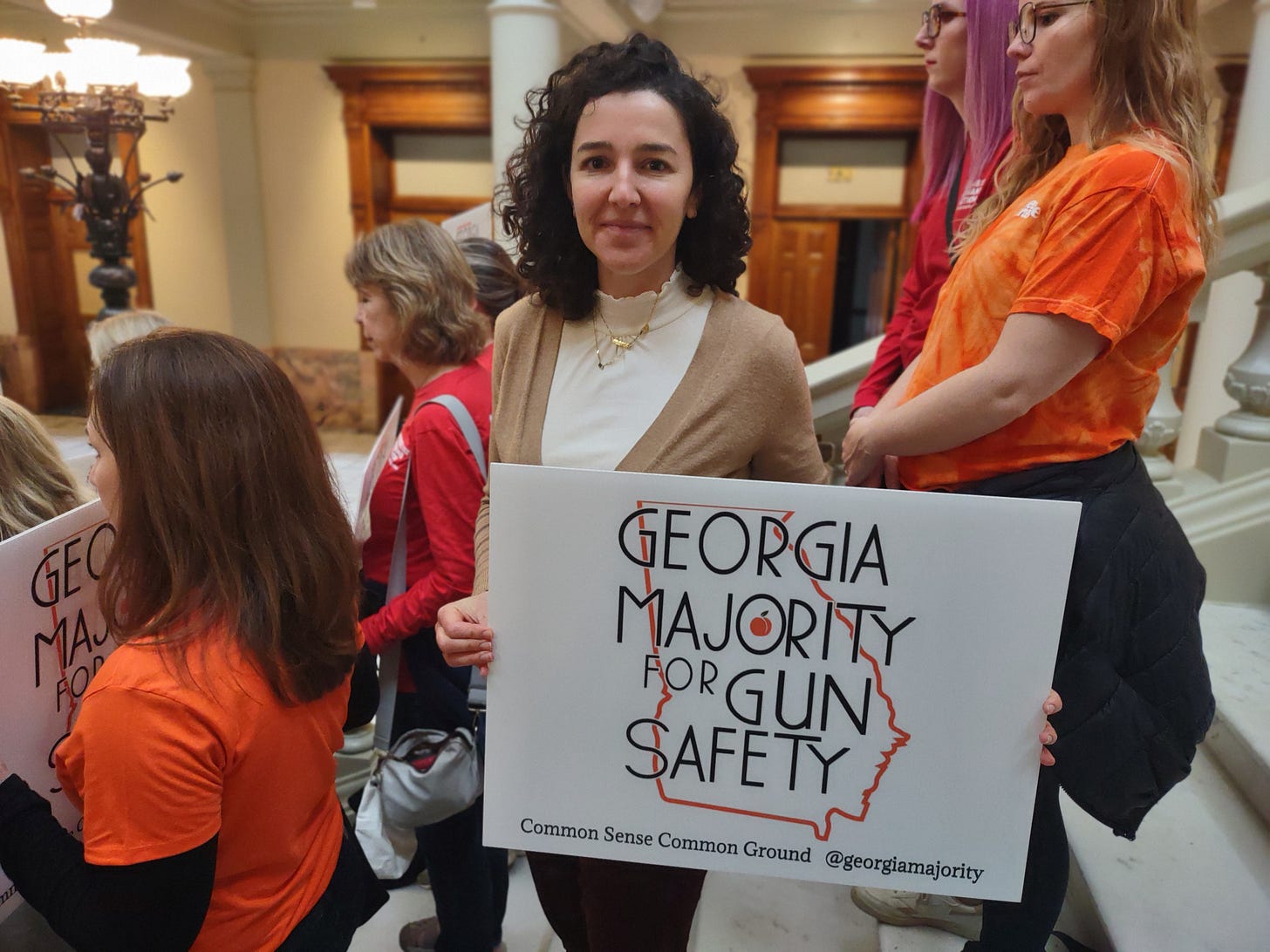The Sausage Factory – Sine Die Style
Laws and sausages, you should never watch either one being made.
— Otto von Bismarck
The Republican Sausage Factory Kicks Into Overdrive
Driving to the Capitol this week, I felt like I was headed to a Republican bill-making factory. Fortunately most of the bills were harmless, but occasionally the Senate Democratic Caucus had to put up a good fight to send some rancid bills to the garbage.
On Thursday we blew through the midnight deadline and worked until almost 1 am when the Majority Leader finally moved to adjourn Sine Die. It was a very, very long day.
A Crazy Way to Make Dinner
You THOUGHT you knew how a bill becomes a law? I bet you never learned in school about “Frankenstein” bills (several bills stuffed into one) or “Christmas Tree” bills (parts of bills amended on to another).
We often see these at the end of session, but this year Republicans took bill slicing and dicing to a whole new level. Senators offered amendments left and right from the floor on bills that were already patched together. It was hard keeping up with what we were voting on. Bill numbers and captions stayed the same even when the content changed.
Sausages That Made it Through the Factory
The State Budget: Passing a balanced budget is the only Constitutionally-mandated requirement of the General Assembly. This year, we fulfilled that duty at 10:45pm on the last day of the session when we agreed to the Conference Committee report for HB 916, reconciling the House and Senate versions of the FY 24/25 budget.
The $36.1 billion budget, down slightly from this year’s spending, includes raises for state employees, teachers, university employees, and law enforcement. It also includes measures championed by Democrats including money for childcare, domestic violence and sexual assault response, and school lunches.
My budget success this year includes $79 million for caretaker raises, a direct result of passing my rate study bill (SB 610, 2022). I also obtained $250,000 for Clubhouse Atlanta, a non-profit in Dunwoody that provides space, support and structure for people in recovery or who have chronic mental health challenges.
What’s not in the budget? Money to arm teachers in schools. Credit goes to those of you who sprang into action over the weekend with phone calls and emails after reading a note in the AJC about an increase in school safety funds to cover Lt. Governor Burt Jones’ plan to arm and train teachers. Both the House and Senate Appropriations Chairs confirmed that school safety money was NOT for arming teachers, and the Budget Conference Committee removed the extra money. You were LOUD and you were heard!
Election Frankenbill: Just after midnight on Sine Die, Republicans pushed through a Frankenstein bill that cobbled together several bad election bills. Here’s some of what SB 189 does:
- Allows third-party candidates on the statewide ballot if at least 20 other states do the same. This opens the door for independent candidate Robert F. Kennedy, Jr. to challenge President Biden here.
- Places additional undue administrative burdens on county elections offices by requiring them to report absentee ballot counts within one hour of polls closing,
- Defines “probable cause” for mass voter challenges. Republicans claim this will help clarify these challenges, but Democrats want to do away with them altogether because they perpetuate the myth of widespread voter fraud and overwhelm our local elections staff, and
- Eliminates QR codes on election ballots after July 2026. (If only they had listened to me in 2019 when I warned them that voters would be suspicious of codes they can’t read.)
Property Tax Cap: Recognizing that rising property taxes are a pain point for many Georgians, we passed a Constitutional amendment to limit property value assessments to the current rate of inflation. A Constitutional amendment requires a two-thirds vote in both chambers, and this one passed easily with bipartisan support. You’ll have a chance to vote on this measure in November.
The Official State Crustacean: When I asked you in my last Snapshot to guess the Official State Crustacean, one of you got it right! The White Shrimp got the honor with the passage of HB 1341.
A Pause to Celebrate Colleagues
The final days of the biennium are often bittersweet, especially when we have to say goodbye to long- time colleagues who won’t be returning to the Gold Dome. We celebrated the retirement of three long-serving trailblazing Senators — Sen. Valencia Seay, Sen. Horencia Tate, and Minority Leader Gloria Butler.
David Cook, our longtime Secretary of the Senate, also announced his retirement. We all count on David and his team to make sure everything in the Senate runs smoothly from orchestrating our floor sessions to taking care of all of our administrative needs. It’s hard to imagine the Senate without his steady hand.
Making My Own Sausage
When my bill for an Innovation Commission for Adults with Developmental Disabilities, SB 198, was hijacked and completely stripped in the House Public Health Committee I hatched a plan to attach the original bill language to the new SB 198 when it came back to the Senate. I enlisted the support of the Lt. Governor’s office and one of my Republican colleagues, I worked with Legislative Counsel to prepare a floor amendment, and I kept a close eye on SB 198 all week.
Late afternoon on Thursday, I was informed by the Lt. Governor’s office that the new language was a priority for House Speaker Burns and our plan was no longer viable. We tried to come up with another plan, but time ran out. With my bill being left on the cutting room floor, the Commissioner of the Dept. of Behavioral Health & Developmental Disabilities has asked me to participate in a workgroup on this issue during the interim.
My Study Committee resolutions to review ways to protect kids from social media and expand higher education in prisons also never made it out of the Senate Rules Committee, but I have received commitments from the Lt. Governor and a couple of Committee Chairs to work on these efforts during the interim through regular Standing Committee meetings.
Sausages Left on the Factory Floor
Thankfully the House declined to take up several culture war bills sent over by Senate Republicans.
More Transgender Discrimination: HB 1104 was originally a great bill to help student athletes with mental health challenges. Then it was stuffed with a ban on transgender students in sports, a ban on transgender students using bathrooms of their gender identity, and another bill to prohibit sex education in schools before sixth grade. Meanwhile HB 1170 was hijacked to ban puberty blockers for transgender kids. The House adjourned Sine Die without passing either.
American Library Association Bill: SB 390 was a bill to cut ties with the American Library Association (ALA) after its President referred to herself as a “Marxist lesbian.” The ALA sets standards and provides training for librarians and provides grant funding for our libraries, so this bill would have been detrimental to our libraries.
Religious Liberty: SB 180 was another failed attempt at instituting “religious liberty” which is typically a thinly veiled license to discriminate against LGBTQ+ and non-Christians.
The Official Bread of Georgia: Cornbread lost its bid to become the Official Bread of Georgia when the Senate declined to take up HB 1048.
What’s Next: Help Me Make More Sausages
As the session comes to a close, it’s now time to gear up my re-election campaign. I’m facing primary and general election opponents, and I need your help. If you appreciate my work and enjoy these Snapshots, I hope you’ll support my campaign by donating, placing a yard sign in your yard, or volunteering your time. Look for another email very soon to find out how you can help.
It’s been an honor and pleasure representing you and I have so much unfinished business I still want to accomplish. I hope you’ll vote in both elections to send me back to the Senate.

